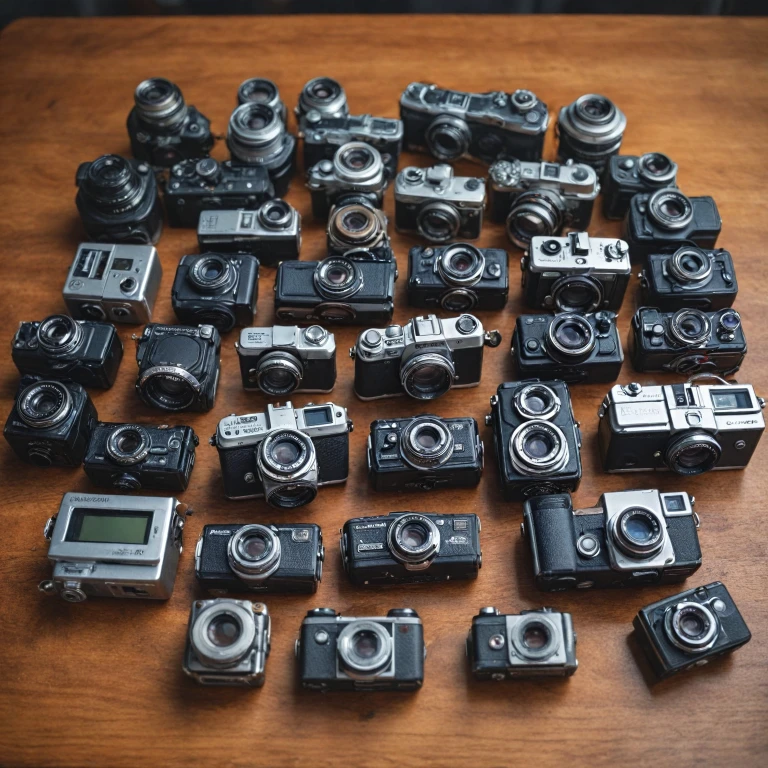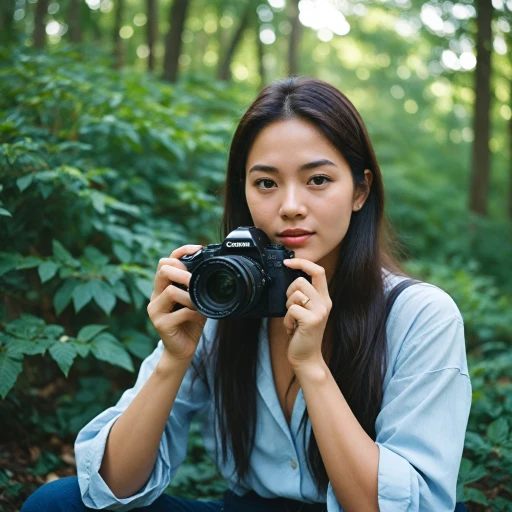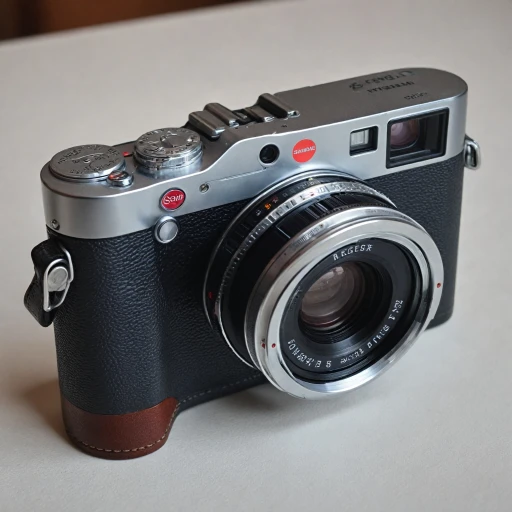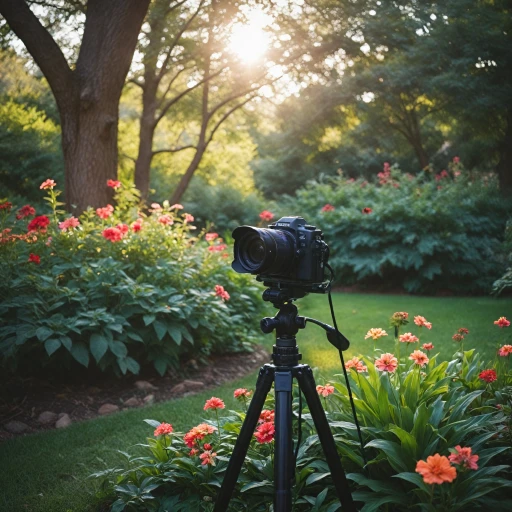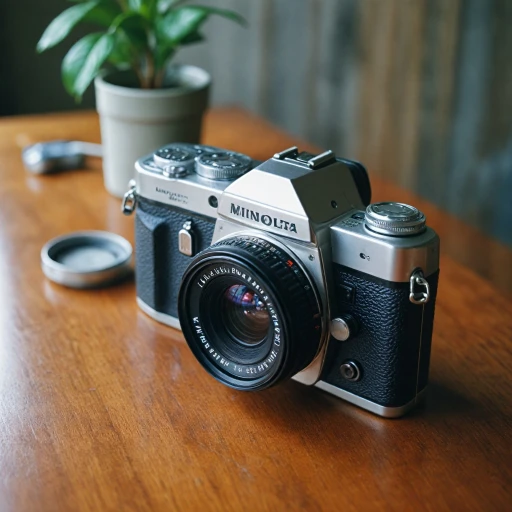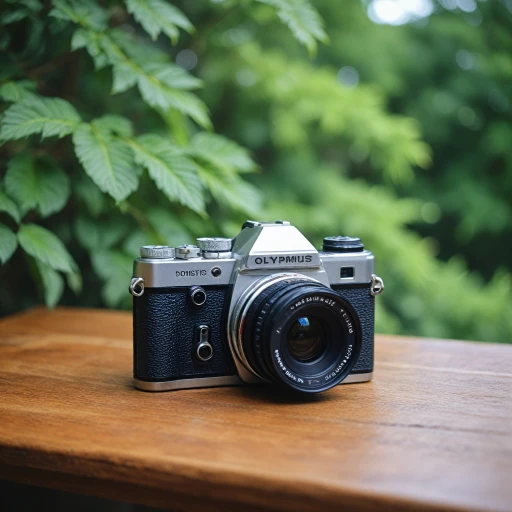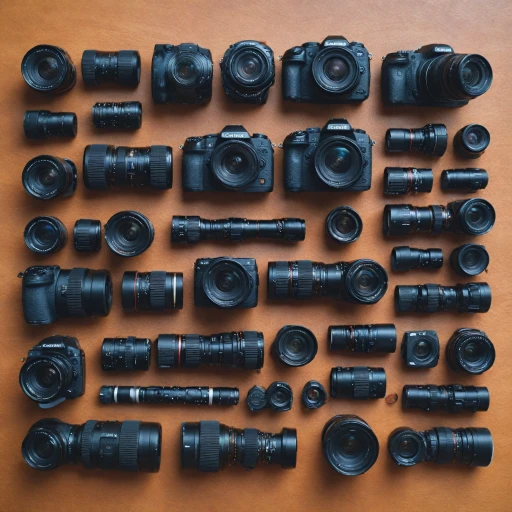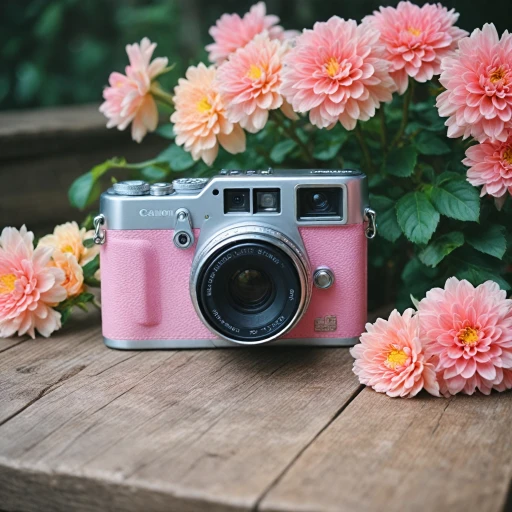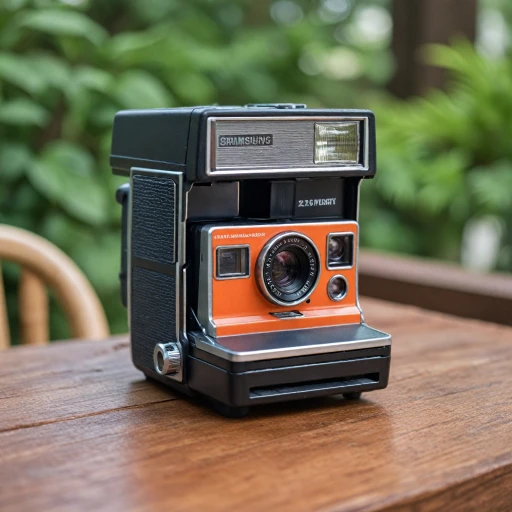
Understanding Point and Shoot Film Cameras
The Charm of Point and Shoot Film Cameras
Point and shoot film cameras hold a special place in the world of photography. These cameras are known for their simplicity and ease of use, making them a great choice for both beginners and enthusiasts. Unlike digital cameras, which offer a plethora of settings and features, point and shoot film cameras focus on capturing moments with minimal fuss.
What Makes Them Stand Out?
One of the key attractions of these cameras is their compact size. Models like the Olympus Stylus Epic and the Canon SureShot are perfect examples of this. They are easy to carry around, allowing photographers to capture spontaneous moments without the bulk of larger cameras.
Another appealing feature is the fixed lens, which often includes a zoom function. This allows for flexibility in framing shots without the need for interchangeable lenses. The built-in flash is also a handy feature, ensuring that you can shoot in various lighting conditions.
Why Choose Film Over Digital?
Film photography has a unique aesthetic that digital cameras often struggle to replicate. The grainy texture and vibrant colors of film can add a nostalgic feel to your photos. Additionally, the process of developing film can be a rewarding experience for those who enjoy the hands-on aspect of photography.
While digital cameras offer convenience and immediate results, film cameras like the Olympus Mju or the Pentax models provide a different kind of satisfaction. The anticipation of waiting to see how your shots turned out is part of the charm.
In the following sections, we'll delve into the key features to look for when choosing a point and shoot film camera, explore some top picks, and compare them to their digital counterparts. Whether you're drawn to the classic appeal of a Leica Mini or the reliable performance of a Nikon, there's a film camera out there for every enthusiast.
Key Features to Look for in a Point and Shoot Film Camera
Essentials for the Perfect Snap
When you're in the market for a point and shoot film camera, identifying key features is essential to enhancing your photography experience. While these cameras are typically known for their simplicity and ease-of-use, certain aspects can greatly influence your overall satisfaction and output quality. Here are some critical features to consider:- Lens Quality: The lens is arguably the most important feature of any camera. In point and shoot cameras, a fixed lens is common, but the quality can vary significantly. Brands like Canon, Olympus, and Nikon are renowned for crafting lenses that capture crisp and vibrant images, so investing in these can be beneficial.
- Zoom Capability: While not all point and shoot cameras will offer extensive zoom options, some models come with a decent range that can be perfect for capturing subjects from a distance. The Olympus Stylus Epic, for instance, is known for its reliable zoom functionality.
- Flash System: A good built-in flash system can make all the difference in low-light situations. Look for cameras that offer adjustable flash settings to cater to different lighting needs.
- Automatic Features: Many point and shoot film cameras are equipped with automatic exposure and focus systems, which are especially beneficial for beginners in film photography. This allows for ease in capturing great shots without needing extensive manual adjustments.
- Build and Portability: The compact size and lightweight construction of point and shoot cameras make them a great travel companion. Models like the Olympus Mju series are praised for their durability and portability, offering a perfect blend of form and function.
- Price Point: Consider your budget when selecting a camera. Options range widely in price, with some affordable models like the Canon Sureshot or the more premium Leica Mini. Both offer distinct features that cater to various photography styles.
Top Picks for Point and Shoot Film Cameras
Our Top Selections for Film Enthusiasts
Exploring the world of point and shoot film cameras is an engaging journey, especially for photography enthusiasts who appreciate the charm and nostalgia of film photography. Whether you're nostalgic for film or simply desire a unique shooting experience, the following options stand out in the current landscape.- Olympus Stylus Epic: Known for its compact size and intuitive use, the Olympus Stylus Epic is a favorite among many photographers. Its weatherproof body and accurate autofocus system make it a versatile choice, while the built-in flash adds to its capability in various lighting conditions.
- Canon Sure Shot: This model, also recognized as the Canon Sureshot, offers excellent features at an accessible price point. The Canon Sure Shot is perfect for those who want a reliable camera with the convenience of an auto-focus and a built-in flash, making it ideal for spontaneous photography sessions.
- Olympus Mju: The Olympus Mju, another standout, is celebrated for its stylish design and high-performance lens. It brings the added advantage of a sophisticated autofocus and a sleek profile, perfect for quick shooting scenarios.
- Leica Mini: Known for producing high-quality images, the Leica Mini remains a revered name in film photography. Its build quality and lens performance deliver remarkable pictures with a distinctive aesthetic synonymous with the Leica brand.
- Olympus Trip 35: A classic in the annals of film cameras, this camera stands the test of time with its non-battery reliant meter and durable build. Its simplicity is appealing, offering straightforward functionality with great results.
Comparing Point and Shoot Film Cameras to Digital Alternatives
Evaluating Point and Shoot Film Cameras Against Digital Counterparts
When diving into the world of photography, understanding the distinction between point and shoot film cameras and their digital alternatives plays a crucial role in your buying decision. Digital cameras have evolved significantly over the years, offering some attractive advantages:- Convenience: Digital cameras, with their instant review capabilities, allow photographers to view and assess their shots immediately. This can be particularly handy for ensuring the perfect shot without having to wait for film development.
- Editing Ease: Digital files are much easier to edit with various editing software, enabling photographers to enhance their images post-capture.
- Storage and Sharing: With ample storage capabilities, digital cameras can hold thousands of images, and sharing online becomes seamless and immediate.
- Authenticity: Film photography imbues images with a classic, timeless quality that many aficionados and enthusiasts find irresistible.
- Focus on Composition: Without the immediate feedback loop digital offers, film photographers often refine their skill in framing and composition.
- Tactile Experience: Using film cameras, from loading the roll to advancing the film, provides a tactile satisfaction that some photographers find lacking in digital devices.
Tips for Choosing the Right Point and Shoot Film Camera
Find Your Ideal Point and Shoot Film Camera
Deciding on the right point and shoot film camera can be challenging, especially with the variety of options available. To simplify your decision-making process, consider the following insights and practical tips:- Identify Your Needs: Before setting your heart on a model like the Olympus Stylus or Canon SureShot, think about what you prioritize in a camera. Is it the simplicity of a fully automatic system, the availability of a built-in flash, or perhaps the capability of a strong zoom lens?
- Budget Considerations: Your budget plays a pivotal role in narrowing down your choices. Prices vary with models; for instance, a vintage Leica Mini might have a higher price USD compared to a more affordable Olympus Mju or a Pentax model. Determine what you're willing to spend and explore options within that range.
- Lens and Exposure Options: If you aim for great film photography, pay attention to the camera's lens specifications. A good lens is crucial. Many point shoots from major brands like Nikon and Canon have lenses that deliver sharp images even in challenging light situations.
- Design and Ergonomics: Comfort and ease of use might seem less critical, but they shouldn't be overlooked. A camera with intuitive controls and a lightweight design, such as the half frame Olympus Trip, will enhance your shooting experience.
- Consider the Features: Key features as discussed earlier, such as automatic exposure controls, inbuilt zoom, and the availability of manual overrides, can influence your choice. Determine which features align with your style and intended use.
Maintaining and Caring for Your Point and Shoot Film Camera
Ensuring Longevity: Caring for Your Film Camera
Caring for your point and shoot film camera is crucial to preserving its functionality and extending its lifespan. Whether it’s the classic Canon SureShot or the compact Olympus Stylus Epic, proper maintenance will keep your device in prime condition for years to come.Regular Cleaning and Handling
- Clean the lens often with a microfiber cloth, ensuring no dust or smudges hinder your photography.
- Use a blower to remove dust from sensitive areas like the viewfinder and flash without scratching the surface.
- Handle your camera with clean hands to avoid transferring oils and dirt, which can build up over time.
Battery and Film Considerations
- Remove the batteries if the camera will not be in use for an extended period. This prevents potential leakage and damage.
- Store film rolls properly. Heat and humidity can degrade film, affecting the quality of your photos.
- Use fresh batteries to ensure the camera functions smoothly, especially the zoom and shutter mechanisms.
Storage Practices
- Store your camera in a cool, dry environment. Excessive heat can warp the body and degrade internal components.
- Invest in a protective case for your camera, such as the Pentax or Nikon models, to prevent physical damage.
Professional Servicing
- Consider getting your film camera professionally serviced every few years. Experts can perform thorough checks and address potential issues you might miss.
- If a feature like flash or zoom is malfunctioning, seeking professional help as soon as possible can prevent further damage.

